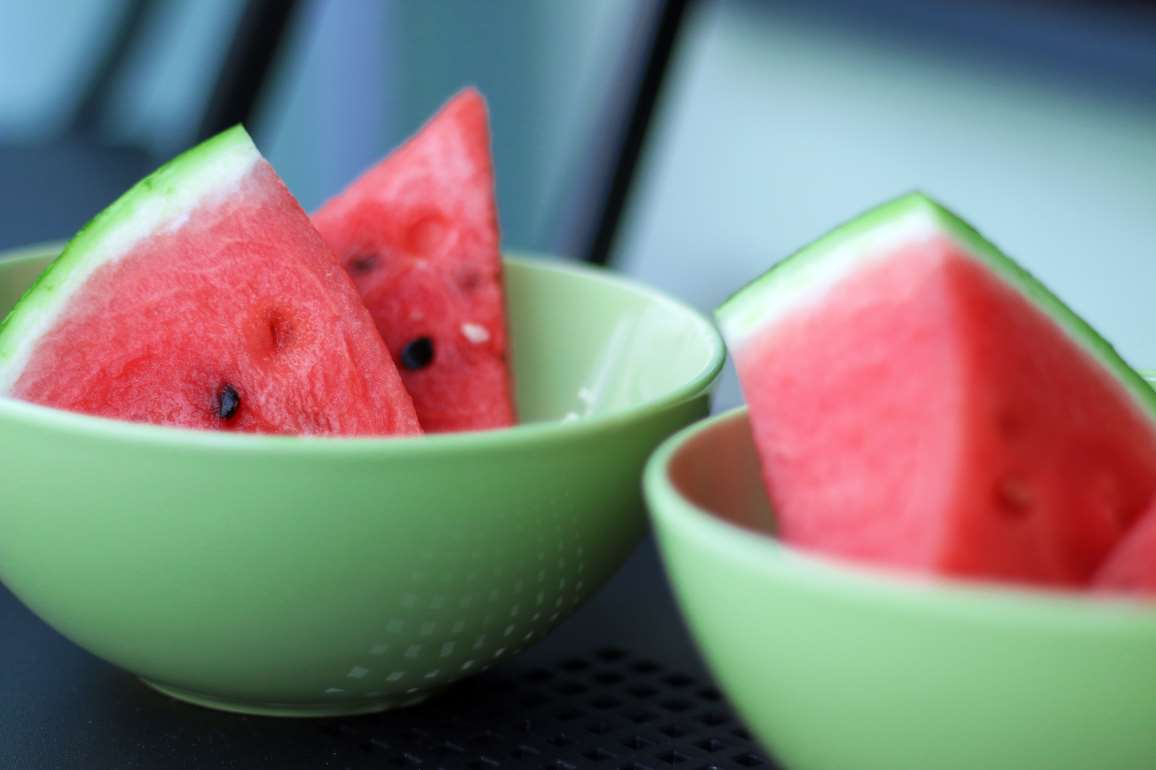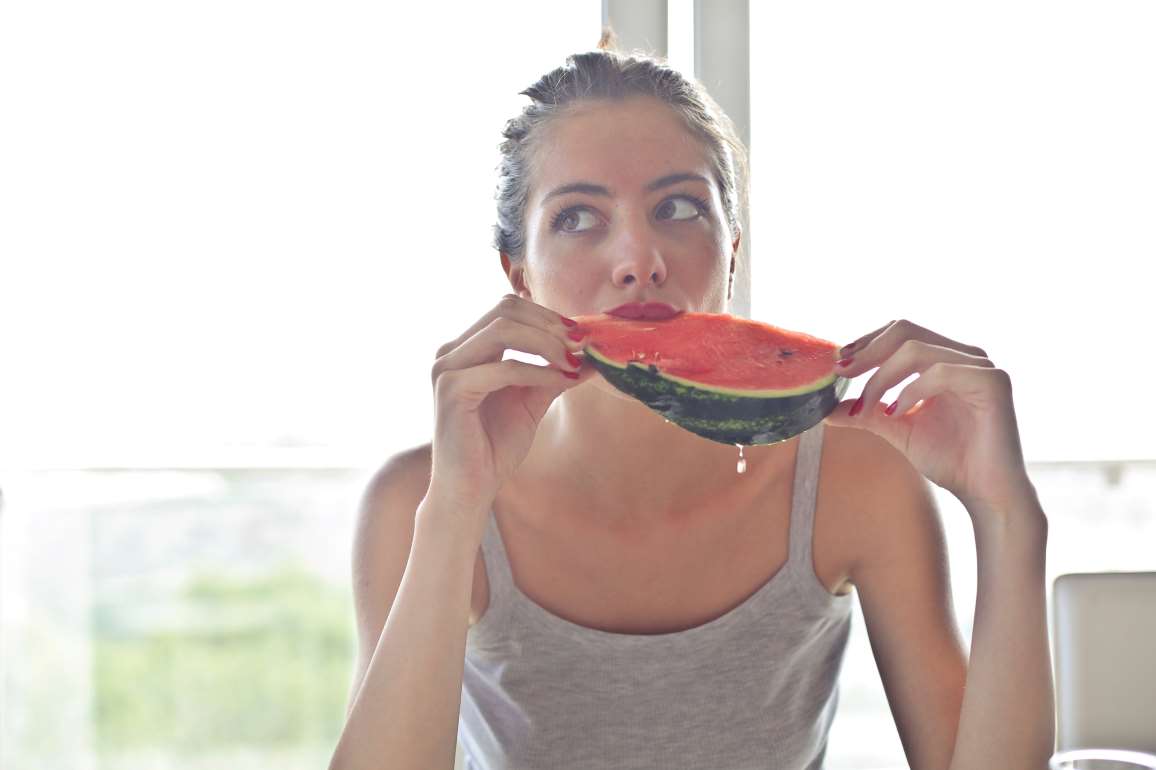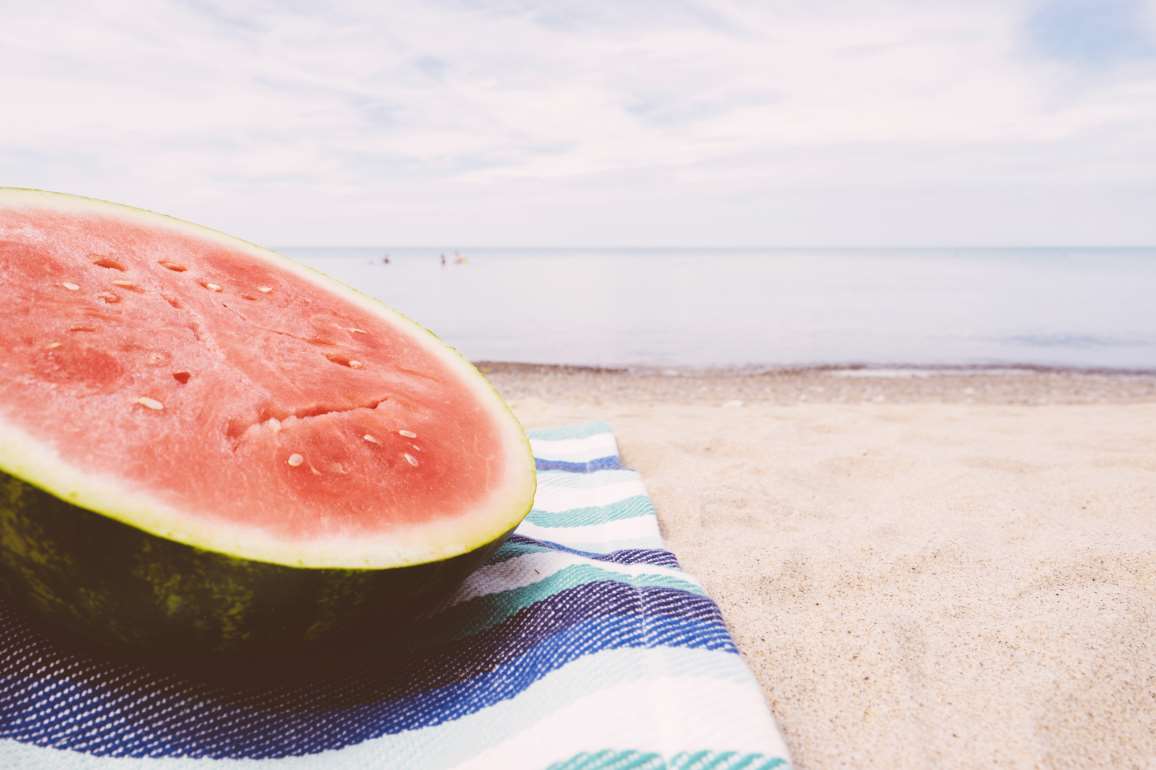For some of you it may be a shocking surprise to hear that watermelon–a juicy, delicious fruit commonly eaten in the summer and a barbecue favorite for most people, are really good for you. They taste delicious and sweet but the good thing about this summer fruit is they don’t carry a lot of calories in them per serving. And the high water content in watermelons make them filling and refreshing, without any cholesterol or fat. They old very valuable nutrients that support a healthy, fit body.
Any food eaten without moderation can damage efforts in weight loss, but with watermelons you’d have to eat a ridiculous amount for that to happen. That makes them a perfect candidate to include when trying to lose weight.
Here are reasons why watermelons are eye-opening for dieting:
Watermelons Are Low In Calories

Vegetables and fruits should make up a significant portion of your low-calorie diet because they’re packed with plenty of nutrients and are low in calories per serving. They can also be quite satisfying.
You can have two cups of watermelon cubes which is equivalent to 80 calories, but still not any fat. This makes them a perfect choice over junk food that can save you plenty of calories. For example, 12-ounce can of soda has 160 calories; a small 3-inch round, glazed doughnut has 130 calories, and a serving of 10-15 barbecue flavored potato chips (equivalent to 1 ounch) has 138 calories and 9g fat. You can silence your thirst and satisfy a sweet tooth with watermelons while being able to cut down on your calorie intake.
Related: 18 Keys to Healthy Weight Loss
Even when compared to other healthy snacks, watermelon has few calories. A 1-ounce serving of roasted almonds — which is approximately 22 kernels — has 170 calories; a small box of raisins has 129. Although these foods offer some nutrients that watermelon does not offer, calories from those other foods do add up. Compared to these choices, you can have more watermelon for fewer calories.
Watermelons Keeps You Full Longer

Eating less to lose weight isn’t easy if you’re always hungry — the key is to eat foods that help you feel full for longer. Watermelon is a good candidate for prolonging fullness.
Watermelon is more than 90 percent water, which will fill you up but won’t fill you out. A 2-cup serving gives you 1 gram of fiber, which slows digestion and keeps you feeling full longer. It also helps keep the colon clean.
Read: Reasons Why You Should Consider Nuts In Your Weight Loss Diet Plan
Compared to leafy greens and broccoli, though, most fruits have approximately three times the number of calories per serving. Although you can enjoy large servings of watermelon without consuming a ton of calories, you do need to keep track of those calories to make sure you’re not exceeding your daily total.
Watermelons Soothes Aching Muscles

An essential part of any weight-loss plan is physical activity. Cardiovascular work and weight training help you burn calories and build muscle, but these activities can make you a little sore, especially when you first start out or if you overdo the activity.
Read: Learn How to Keep Your Weight Loss Goal in Check by Keeping Yourself in Check
Watermelon may help soothe this soreness, according to a small study published in the Journal of Agricultural Food and Chemistry in 2013. Drinking 16 ounces of watermelon juice an hour before exercise helped athletes maintain a lower heart rate and they felt less muscle soreness the next day. Researchers surmise that this is because of a compound known as L-citrulline, which naturally occurs in watermelon. Your body converts L-citrulline into another essential amino acid, known as L-arginine, which enhances circulation and relaxes blood vessels. So, a dose of watermelon may help you recover quickly, which enables you to return to working out and burning calories sooner.
Nutrients In Watermelons Support Good Health

When you’re reducing calories to lose weight, it’s important to make sure the calories you do eat are rich in nutrients. Watermelon helps you do this, as it provides 25 percent of the daily value of vitamin C and 30 percent of vitamin A in each 2-cup serving. Watermelon also provides you with some calcium, iron and potassium, and is a good source of vitamin B-6, which supports your immune system. The presence of potassium helps balances the high amounts of sodium our diets contain and thus supports the kidneys.
Related: 7 Eating Tips To Help You Lose Weight and Keep It Off
Watermelon is also rich in the antioxidant lycopene. Lycopene is a plant compound that may reduce your risk of cancer, heart disease and macular degeneration, which is a type of vision loss that can occur with aging. Intake of lycopene is inadequate in many people’s diets, so eating more watermelon to help with weight loss will also help you get ample quantities of this antioxidant.
Watermelons Keep You Hydrated

It becomes terrifyingly easy to be dehydrated. And when you become dehydrated, you might experience fluid retention. Fluid retention isn’t fat gain, but it can cause bloating and make your belly look bigger. Watermelon is more than 90 percent water and can help you stay hydrated to combat fluid retention.
Read: Here’s How 2 Glasses Of Wine Before Bed Helps You Lose Weight
from Weight Loss Insider https://ift.tt/2PbAlSM
via Best Weight Loss Supplement
0 comments:
Post a Comment